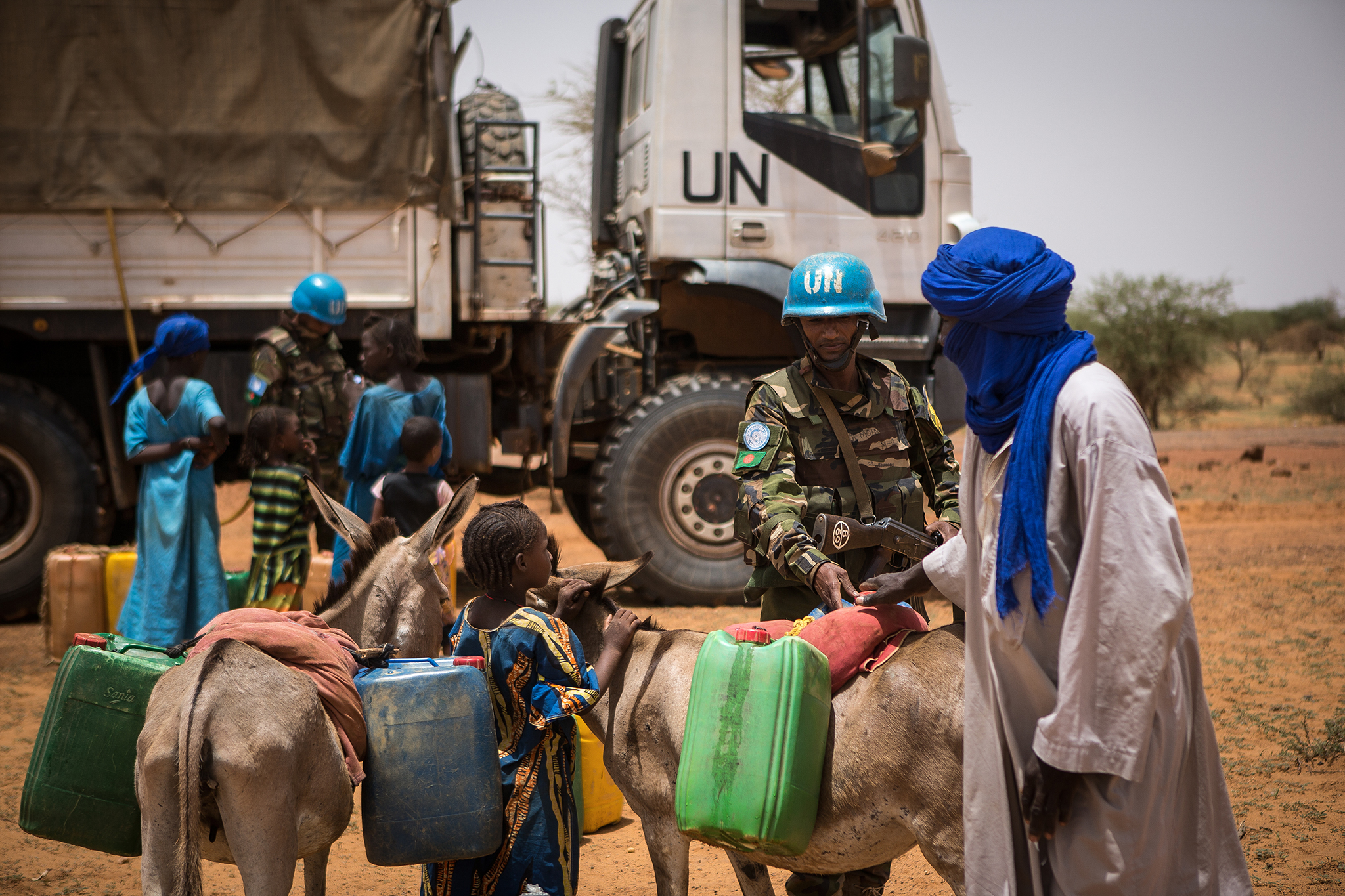Photo credit: U.N Photo
Context:
Research has shown that, in most cases, armed UN peacekeepers help protect civilian lives. However, militarizing any part of the peace process is dangerous and is often met with unintended consequences.
In the News:
“Over the past 20 years, U.N. peacekeeping deployments have increased by more than 600 percent. Currently, the United Nations manages 14 peacekeeping operations worldwide, staffed by more than 95,000 military personnel, police, civilians and volunteers. For almost all of these, a common mandate is to protect civilians — which is important not just in immediately saving lives, but also in sustaining peace over the long run.”
“But do armed peacekeepers actually protect civilians from harm? That’s been debated lately. A recent report, delivered to U.N. Secretary General António Guterres by retired Brazilian Lt. Gen. Carlos Alberto dos Santos Cruz, recommends boosting peacekeepers’ war-fighting abilities. But others, including Professor Lise Howard, argue that militarization isn’t what keeps the peace.”
Insight from Peace Science:
- Robust peacekeeping, though it may succeed in protecting civilians in the short-term, has unintended consequences that may jeopardize other important goals and the broader work of UN missions.
- The greater militarization and partiality entailed by robust peacekeeping may actually put civilians at risk, along with peacekeepers, other UN officials, and independent humanitarian actors, in some cases also diminishing humanitarian space/access.
- The state-centrism entailed by robust peacekeeping may compromise the more substantive aspects of a UN mission, prejudicing its human rights, peacebuilding and development, and political work too far in favor of the government’s concerns at the exclusion of others’.
- The “robust turn” in UN peace operations may more broadly jeopardize peacekeeping principles and consensus around UN peacekeeping, cause a drop in troop contributions from UN member states, and impede cooperation between the UN and humanitarian actors
Robust Peacekeeping: The use of force by a United Nations peacekeeping operation at the tactical level, with authorization of the Security Council, to defend its mandate against spoilers whose activities pose a threat to civilians or risk undermining the peace process.
(United Nations. (2008). United Nations Peacekeeping Operations: Principles and Guidelines “Capstone Doctrine”. New York: United Nations Secretariat. http://www. un.org/en/peacekeeping/documents/capstone_eng.pdf.)
References:
- “Armed peacekeepers really do protect civilians — with one big exception”. By Brandon Prins & Anup Phaya for MonkeyCage, Washington Post. June 14, 2018.
- Peace Science Digest Volume 2, Issue 2: “The Unintended Consequences of “Robust” UN Peace Operations“.

